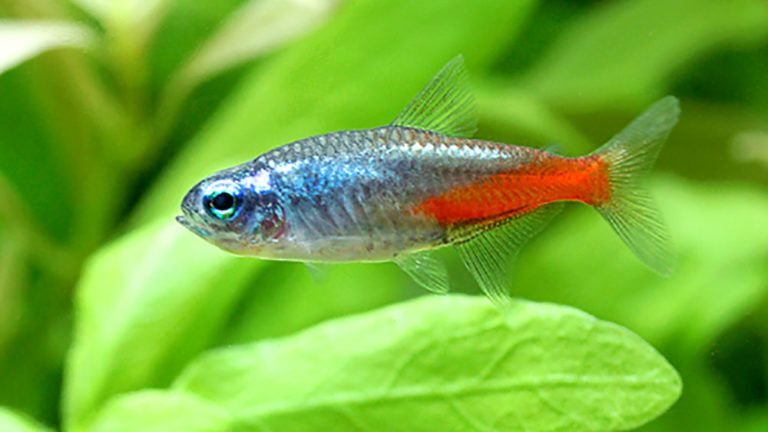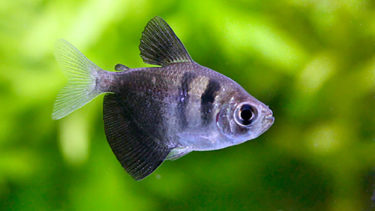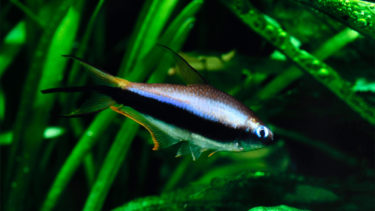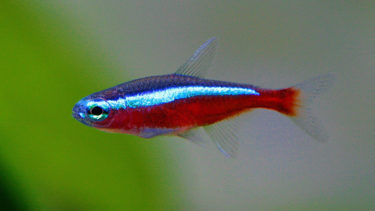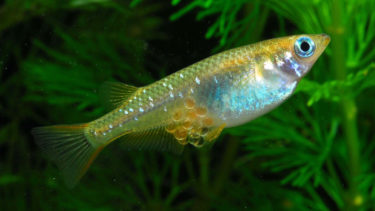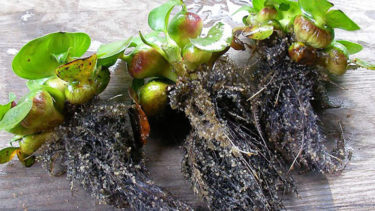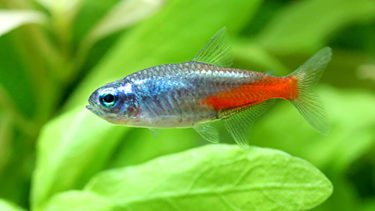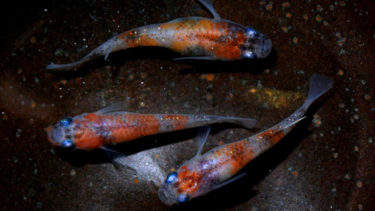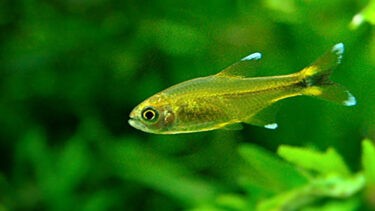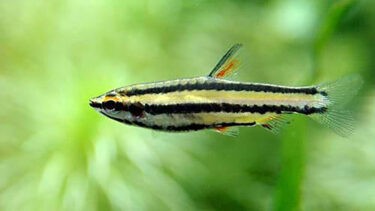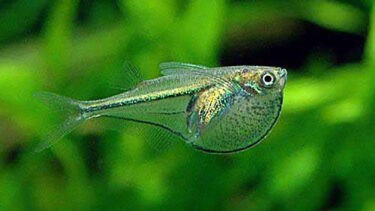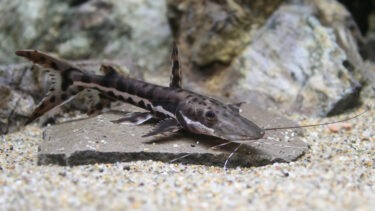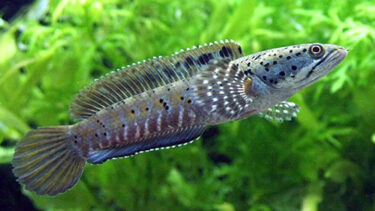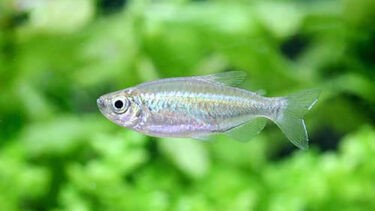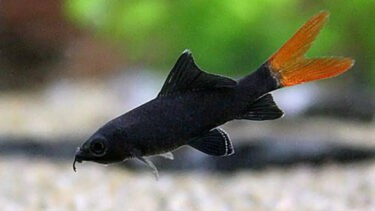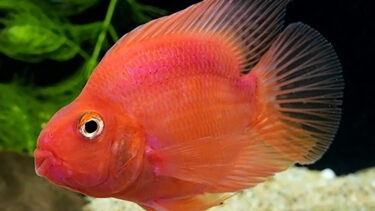The neon tetra is a tropical fish in the family Carassinae, and is a beautiful fish with a blue glow from its head to its tail fin. In this article, we would like to explain in detail the characteristics of the neon tetra and how to keep it.
What is Neon Tetra?
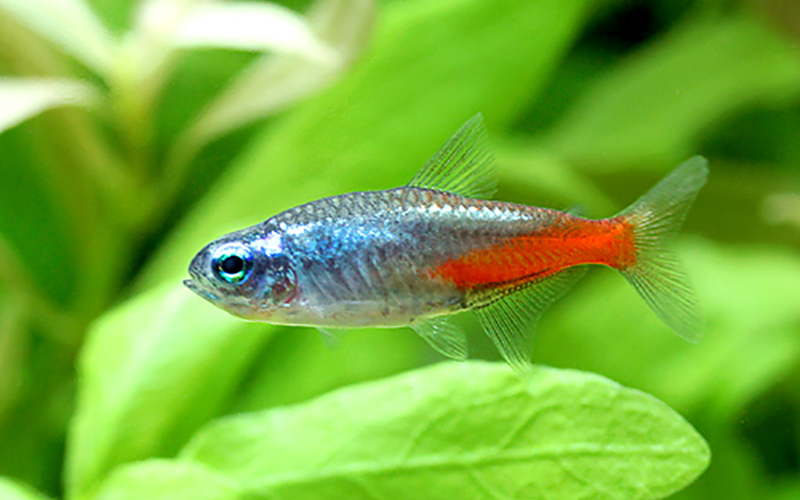
The neon tetra is a tropical fish in the family Calacinidae. It has long been one of the most popular tropical fish species. It is therefore a tropical fish that is handled by most specialty stores. The Neon tetra is characterized by a blue light that shines from its head to its tail. It is also characterized by a red glow underneath the blue light.It was named Neon Tetra because the blue glow was like a neon metallic blue glow. Neon tetras are about 4 cm in length. Many Neon tetras are small when they are sold at specialty stores, so they naturally grow larger when kept in captivity. The life span of the Neon Tetra is one to two years. However, this is only a guideline, and they may die earlier than this if the water quality is not a good match or if they are incompatible with the species they are kept with. On the other hand, if the water quality is very well matched, it is possible for neon tetras to live up to 4 years, but since this is rare, it is recommended to use 1-2 years as a guideline.
The black tetra is a tropical fish of the Caracinidae family in the order Caracinidae that lives in the Guapole River in Argentina and Paraguay in South America, and has a diamond-shaped body. In this article, I would like to explain in detail the characteristics of the Black Tetra and how to keep it. [...].
Emperor tetras are tropical fish of the order Calasinidae, family Calasinidae, genus Nematobricon, living in Colombia, South America. They have a pale purple body color with thick black vertical stripes and yellowish-green colored fins. In this article, we will explain in detail the characteristics of the Emperor Tetra and how to keep it [...].
Points to keep in mind when mixing swimmers
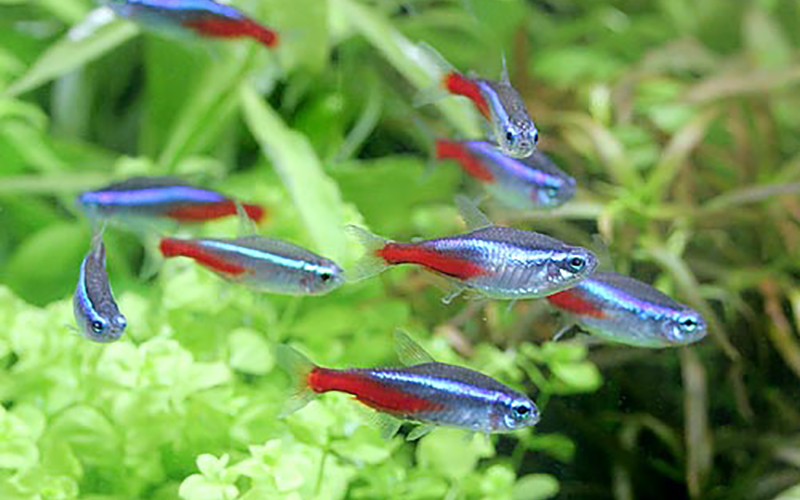
Regarding swimming together, first of all, neon tetras are a docile breed. Therefore, when you keep neon tetras, you will see them swimming in groups compared to other ornamental fish.Neon tetras swim in groups for defense by making them look like large fish by swimming in groups and for measures to ensure the survival of as many fish as possible if they are attacked. Among freshwater ornamental fish, there are not many varieties that swim in groups, so we recommend this species to those who want to see them swim in groups. They are also docile, so they are unlikely to harm other fish. On the other hand, if the species you wish to mix with neon tetras is a territorial species, it will be the first to harm other fish, so be sure to investigate this beforehand.
Differences from Cardinal Tetras
Neon tetras are a major breed of tropical fish. For this reason, they are often seen in specialty stores. In some cases, Cardinal Tetras of the same colorassin family are sold near aquariums where Neon Tetras are sold. Many people are confused because this Cardinal Tetra looks similar to the Neon Tetra.The main difference between neon tetras and cardinal tetras is the amount of red area occupied by the body. Cardinal tetras have more red areas than neon tetras.The large number of red areas allows the blue and red areas to be clearly distinguished and the colors to come out beautifully. However, since Cardinal Tetras are generally more expensive than Neon Tetras, it is up to the individual to decide whether the price difference is enough to make up for the difference in attractiveness.
The cardinal tetra is a tropical fish of the family Carassinae of the order Carassinae that lives in the Negro and Amazon rivers in South America. It is a beautiful fish with a blue glow from its head to its tail fin. In this article, I would like to explain in detail the characteristics of the Cardinal Tetra and how to keep it. [...].
Points about spawning
Many people who keep neon tetras want to breed them. Neon tetras are easy to keep, but breeding them is a little more difficult. However, it is possible to increase the number of Neon tetras in a stable manner by knowing the proper procedures.
The first is to keep individuals that are suitable for breeding.Neon tetras have a lifespan of about two years, so the time until they are ready to breed is short, roughly four to six months after birth. Therefore, if you want to breed Neon tetras, it is important to select relatively young individuals when purchasing them at specialty stores. However, it is difficult to distinguish between young and old, so it is safe to choose a small body size when purchasing. A large-bodied individual may have been born a year or so ago, so choose an individual with as small a body size as possible. However, it is important to note that if an individual has eggs in its belly, it is also a good choice. If you have eggs in your stomach, you can skip some steps, so if you have eggs in your stomach, I recommend you to choose them.
The second thing to do is to prepare a breeding tank.As those who have bred killifish may know, if the parents (adults) and fry (young) are kept in the same tank after successful spawning and hatching, they may compete for food or the adults may eat the fry, resulting in a decrease in the number of fry. To prevent this from happening, it is recommended that the parents and fry be kept in separate aquariums for easier management. However, unlike killifish, neon tetras are tropical fish and require a heater during non-summer months. If you are not sure whether or not to purchase a heater for the tank where you will keep the fry, you may be able to find equipment at specialty stores that will allow you to borrow part of the tank where you are keeping the parents to make space for the fry.
Third, when rearing fry after hatching, do not allow strong light to continually illuminate the aquarium by constantly turning on lights, etc.Neon tetras originally lived in the murky waters of the Amazon River. Therefore, such an environment is not one that allows for constant strong light. Therefore, when rearing fry, it is important to avoid an environment that is constantly exposed to strong light as much as possible. For example, you can reduce the use of LED or metahara lights, or add water plants to provide shade. Adult neon tetras can tolerate a certain amount of light, but juvenile neon tetras are not as tolerant as adult neon tetras, so please take measures as soon as possible.
Many people who keep killifish want them to spawn. However, not many people know about spawning and what they need to do to prepare for it. This time, we would like to explain the method of spawning and the points to be noted [...].
If you have kept goldfish for a long time, you may want to try to breed them. However, if goldfish spawning is not done with care, there is a high possibility that the goldfish will weaken. In this article, I would like to explain in detail the method and precautions for spawning. The time of spawningThe time of spawning of goldfish is [...]
What to look for when keeping a neon tetra
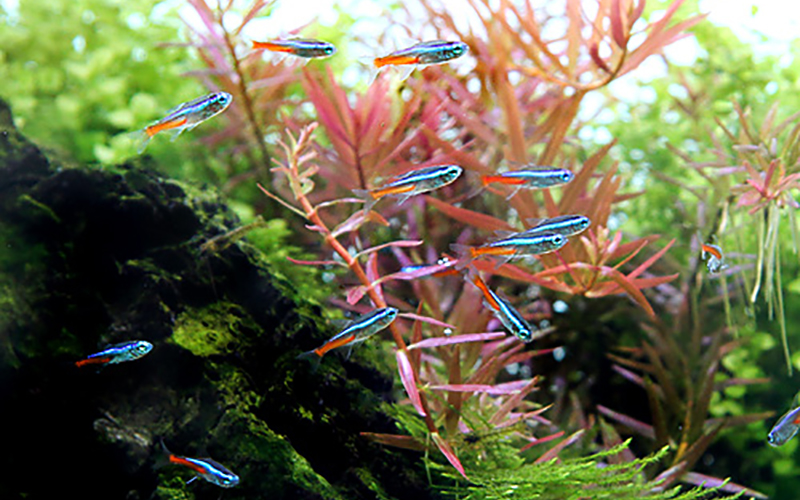
Neon tetras are a popular breed of tropical fish because they are easy to keep and can be purchased inexpensively. Therefore, it is recommended for beginners and first-time tropical fish keepers. However, a single Neon Tetra has less impact than other tropical fish.For this reason, it is recommended to keep several of them together. The greatest appeal of neon tetras is that they swim in groups. Even in a small aquarium, they will feel satisfied by swimming in a group. Also, if you keep them in a large aquarium, it is fun to see them swimming in a group with other tropical fish, because you rarely see other tropical fish swim away from them when they swim toward the group. Thus, it can be said that the neon tetra is a tropical fish suitable for many people. If you have a chance to see them at a specialty store, I recommend you to take a look at them.

